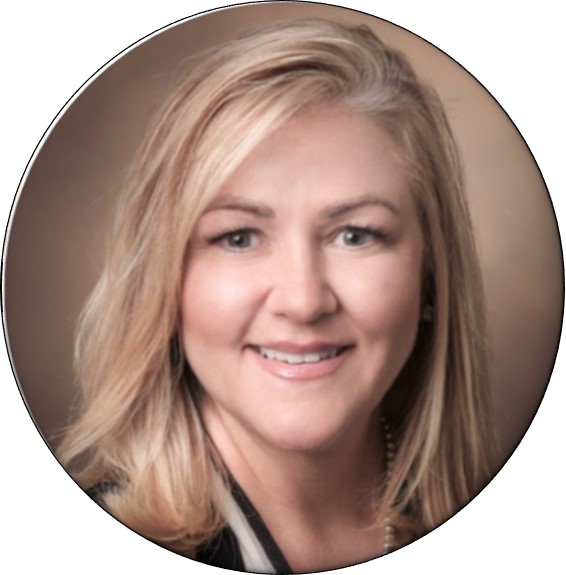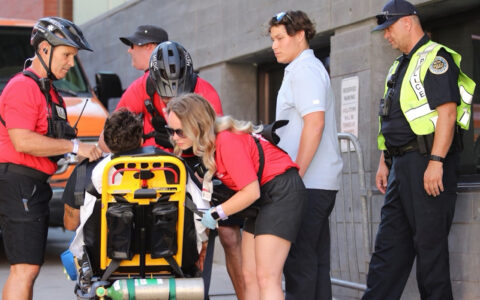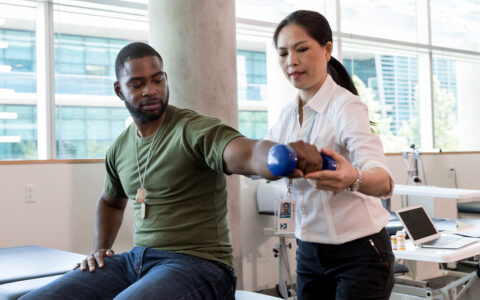The role of advanced-practice clinicians (APCs) has risen dramatically in the past decade due to physician shortages and growing complexity of patient care.
By extension, the demand for post-graduate training programs is surging, as APCs strive for greater competence and knowledge in their area of practice.
“Specialized care is becoming increasingly complex,” said Buffy Krauser Lupear, A.P.R.N., who also holds a doctorate in nursing practice and is a certified registered nurse anesthetist.
Krauser Lupear serves as VUMC’s director of advanced-practice development and professional practice and is also program director for advanced practice fellowships.
“As the scope of practice for APCs continues to expand, there is growing need for structured, accredited training programs,” she said.
To keep up with this demand, Vanderbilt University Medical Center launched its first advanced practice fellowship program in 2018. The 12-month experience supports new advanced-practice clinicians as they transition from student to competent clinician or from one advanced-practice specialty to another.
ANCC Accreditation
In 2020, the program obtained accreditation from the American Nurses Credentialing Center (ANCC) Commission on Practice Transition Accreditation Programs and the newly established Advanced Practice Provider Fellowship Accreditation.
ANCC accreditation is a voluntary review process designed to strengthen and sustain the quality and integrity of practice-transition programs. This accreditation recognizes the evidence-based curriculum and that it meets the highest standards in education and environment, she explained.
“VUMC stands out as one of the few programs nationwide with this recognition,” Krauser Lupear said. “The accreditation was the result of a lengthy self-study that included information on the history of the program, how it has evolved, successes and challenges, quality outcome data and stories from fellows.”
New Specialties
Since 2018, Vanderbilt has offered many fellowships. Among them, specialties in solid organ transplant, adult urology, adult colorectal surgery, adult oncology-hematology and medical/surgical weight-loss. The recent accreditation included additional approvals for psychiatric/mental health-child and adolescent, adult oncology-surgical, and otolaryngology.
In 2024, fellowship service lines in regional emergency medicine, pediatric oncology-hematology, and certified nurse midwife-hospitalist will be added.
“Fellows receive specific education and skills training to assist them in developing effective decision-making, clinical judgment and professional performance,” Krauser Lupear said. “They not only see patients but also have protected time for scholarly work, including attending conferences and completing a project.”
National Leadership
VUMC is recognized as a national leader in advanced practice, with over 1,500 advanced-practice clinicians working at Vanderbilt. As an essential part of the interdisciplinary team, advanced-practice clinicians are helping to expand access to comprehensive, cost-effective care.
“Our fellows join us from all over the country, and we have been fortunate to retain many of them after they finish their fellowship” Krauser Lupear said. “I believe this reflects the culture at Vanderbilt that attracts APCs to begin their careers with us in an atmosphere that espouses continual learning, growth, and support.”
Looking ahead, Krauser Lupear envisions a more prominent role for the institution in shaping the transition to practice of APCs at the national level. This could include developing competency-based standards specific to each specialty’s scope of practice.
“My utmost priority is to remain at the forefront of trends in our field,” she said. “Competency-based education is a model that holds promise for ensuring a well-trained and competent APC workforce.”




